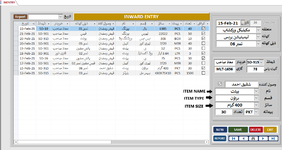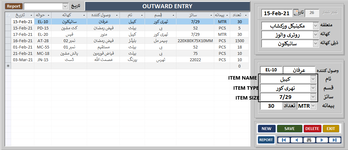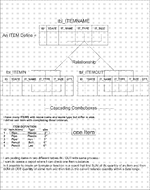HELLO EVERYONE.
I am working to develop an INVENTORY database. In my database i created an ITEM IN Table where i stored the IN Items using cascading combo boxes. I define my one Item with Three criteria eg. ITEM NAME, ITEM TYPE, ITEM SIZE (Untitled1).
i performed same sequence to store data in my ITEM OUT Table. (Untitled2)
I have lot of Items with same name but differ in types and also in its sizes eg. PIPE(item name), Plastic(item type), 3"(Item size)
Here I want to create a report that first SUM Defined Item's IN quantity and then subtract same Defined Item's OUT quantity to check an ITEM's Balance within a date range.
How its possible.
I am working to develop an INVENTORY database. In my database i created an ITEM IN Table where i stored the IN Items using cascading combo boxes. I define my one Item with Three criteria eg. ITEM NAME, ITEM TYPE, ITEM SIZE (Untitled1).
i performed same sequence to store data in my ITEM OUT Table. (Untitled2)
I have lot of Items with same name but differ in types and also in its sizes eg. PIPE(item name), Plastic(item type), 3"(Item size)
Here I want to create a report that first SUM Defined Item's IN quantity and then subtract same Defined Item's OUT quantity to check an ITEM's Balance within a date range.
How its possible.








